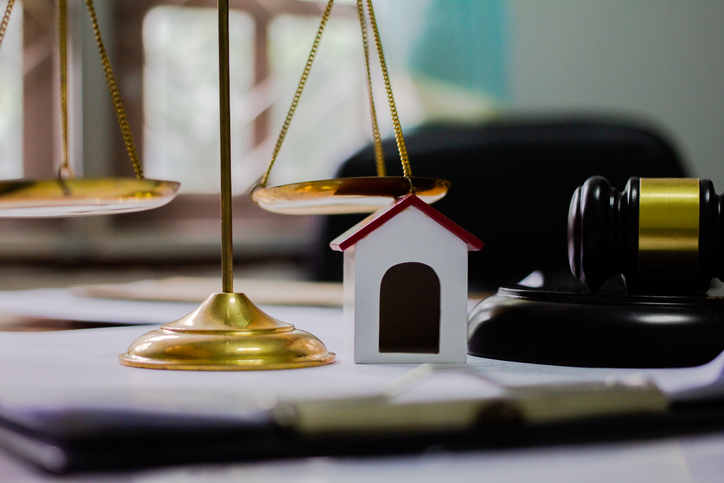The Key Term All Commercial Real Estate Owners Should Know

Key Takeaways
- Obsolescence in real estate principles can unlock substantial property tax savings through strategic appeals
- Incurable obsolescence factors provide the strongest foundation for successful assessment challenges
- Proper documentation of external factors is essential for demonstrating value impacts to tax assessors
Commercial real estate owners face substantial property tax burdens that can significantly impact investment returns. However, a comprehensive understanding of obsolescence real estate principles can unlock substantial tax savings through strategic property tax appeals. This critical valuation concept often determines the success or failure of assessment challenges, yet remains underutilized by property owners seeking tax relief.
Property tax assessments frequently overlook obsolescence factors that substantially reduce fair market value. When properly documented and presented, these overlooked elements can result in hundreds of thousands of dollars in tax savings for commercial property owners.
The Financial Impact of Property Taxes on Commercial Real Estate
Commercial properties consistently serve as reliable wealth-building vehicles, yet heavy property tax assessments substantially reduce net operating income and overall profitability. These excessive assessments directly decrease real estate values and diminish investment returns.
Property owners can mitigate these financial impacts through strategic property tax appeals. Success in these appeals typically hinges on understanding and properly documenting obsolescence in real estate factors that assessors commonly overlook during valuation processes.
Obsolescence in Real Estate: Defining the Critical Concept
Obsolescence in real estate refers to any reduction in property value resulting from physical conditions or external factors beyond normal wear and tear. This valuation principle encompasses two distinct categories that fundamentally impact assessment appeal strategies.
Curable Obsolescence in Real Estate
Curable obsolescence represents value reductions that property owners can remedy through reasonable investment. Examples include outdated lighting systems, inefficient HVAC equipment, or cosmetic improvements. Tax assessors typically resist reducing assessments for curable obsolescence, since property owners retain the ability to address these issues.
Incurable Obsolescence: The Key to Successful Appeals
Incurable obsolescence encompasses value reductions that property owners cannot reasonably remedy. These external factors create permanent value impairment and represent the strongest foundation for successful property tax appeals. A qualified real estate tax attorney can effectively leverage these factors to secure assessment reductions.
Critical Examples of Incurable Obsolescence
Zoning Law Modifications
Local governments periodically modify permissible property uses through zoning amendments. These regulatory changes can dramatically impact fair market value by restricting or eliminating the highest and best use potential. Property owners should document all zoning modifications affecting their commercial real estate investments.
Eminent Domain Impact
What is eminent domain becomes particularly relevant when partial property takings occur. Government acquisition of portions of commercial property can permanently alter remaining property functionality and value. For instance, eminent domain proceedings that remove access routes or eliminate parking areas can substantially reduce the fair market value of remaining property.
Traffic Pattern Alterations
Highway retail establishments and commercial properties dependent on vehicle traffic suffer significant value impacts when traffic patterns change. Road closures, highway rerouting, or new construction projects that divert traffic represent incurable obsolescence factors that assessors should recognize in valuation analyses.
Flight Pattern Changes
Increased overhead aviation traffic creates noise disturbances that permanently impact property values. These environmental factors represent incurable obsolescence that property owners cannot address through reasonable investment.
Commercial Real Estate Valuation Methodologies
Tax assessors employ three primary approaches when determining fair market value: sales comparison, income approach, and cost approach. Each methodology must properly account for obsolescence in real estate factors to ensure accurate valuations.
The sales comparison approach requires careful adjustment of comparable property sales to reflect obsolescence differences. Income approach calculations must incorporate reduced income potential resulting from incurable obsolescence factors. The cost approach presents particular challenges, since construction costs alone fail to reflect obsolescence-related value reductions.
A knowledgeable real estate tax attorney NJ can ensure that assessors properly consider all relevant obsolescence factors, regardless of the valuation methodology employed.
Documentation Strategies for Obsolescence Claims
Successful property tax appeals require comprehensive documentation supporting obsolescence claims. Property owners should maintain detailed records, including:
- Zoning change documentation and municipal correspondence
- Construction plans and traffic impact studies
- Environmental impact assessments and noise studies
This documentation provides essential evidence supporting fair market value reductions attributable to incurable obsolescence factors.
Secure Expert Legal Guidance for Your Property Tax Appeal
Understanding obsolescence in real estate concepts represents just the beginning of successful property tax appeal strategies. Complex valuation principles and legal procedures require experienced professional guidance to maximize your chances of securing substantial tax reductions.
Our experienced legal team specializes in commercial property tax appeals and understands how to effectively leverage obsolescence factors for optimal results. Don’t let excessive property taxes diminish your investment returns. Contact our property tax experts today.







